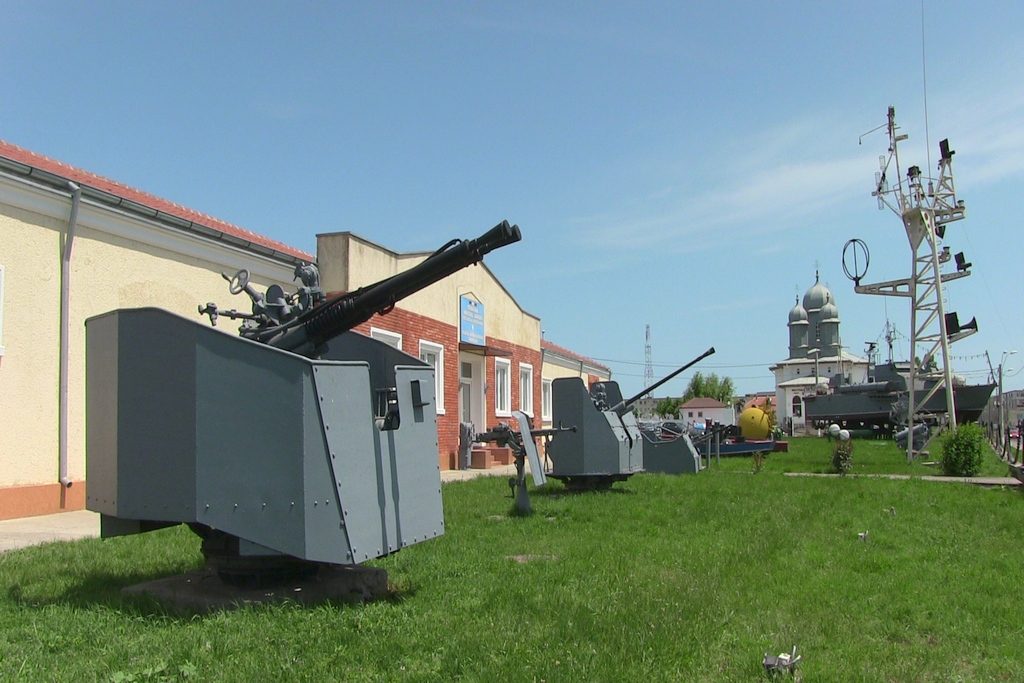

THE MARINE MUSEUM from Mangalia was improved in the year 2004 in one of the barrack’s dismantled buildings.
The institution is conceived as a museum dedicated to the naval technique and emphasizes on the activity of the port from Mangalia during the years 1952 and 2000.
The Marine Museum Mangalia makes available to the visitor and impressive collection of navigation technique and heritage objects, which represent faithfully the recent history of the military Marine, throughout the to modern exposition premises and a thematic library.
Within the exposition, there are found objects belonging to the arm collections under water, presented in detail, sections of torpedoes which were in the equipment of the marine gangs of the Mangalia Garrison. In the front courtyard of the museum building, there are exposed pieced from an impressive collection of naval artillery and anti-aircraft artillery, dominated by the massive cannon of 130 mm, which belonged to the coast artillery.
Prior to the XIIIth century, Mangalia appears under the antique name of Callatis (Callata in the Genovese navigation maps, sometimes between brackets under Pangalla or Pancalia).
Callatis was a colony of the Greek citadel Heraclea Pontica (today Ereğli in Turkey) from the VIth century before our era. The port and half of the town from antiquity are currently covered by waters. Despite the inevitable wars and of changes of lords, the town prospered throughout 1200 years, sometimes free, other times under the successive dominations of the Persians, of the Macedonians, of the Dacians and of the Romanians, becoming Byzantines following the Christianization.
During 1890 – 1892, the locality was populated with colonist of German origin, known as Germans from Dobrogea. The majority left the locality in 1940, being migrated by force in Germany, under the slogan “Heims ins Reich” (go home to Reich).
Mangalia becomes a modern port (the second maritime port after Constanța).
After the second world war, the city becomes a military frontier area and the tourism stagnates for ten years.
